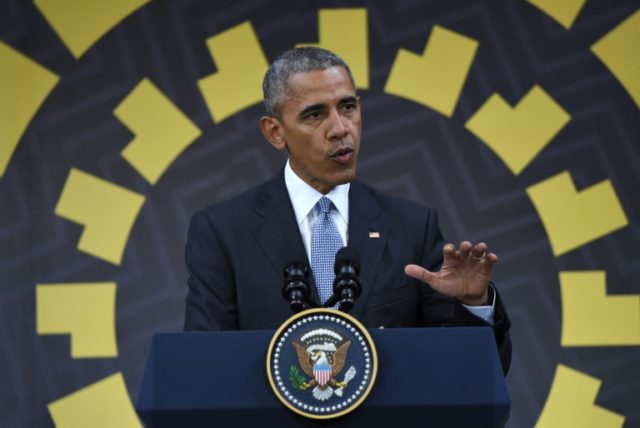Lima (AFP) – US President Barack Obama on Sunday defended free trade as fellow Asia-Pacific leaders vowed to fight protectionism after Donald Trump’s shock election victory sparked fears for the future of global commerce.
The surprise win by Trump, who vowed to tear up trade deals that he claimed sent American jobs abroad, has raised concerns that years of rolling back trade barriers could be reversed.
His victory overshadowed a summit of the Asia-Pacific Economic Cooperation (APEC) group held in Peru this week, where leaders found themselves under fierce pressure to defend trade against a rising tide of anti-globalization sentiment in Europe and America.
There was particular concern about the future of a major US-backed deal — the Trans-Pacific Partnership (TPP), which Trump has vowed to kill off — and that China was positioning itself to forge ahead with its own trade deals and fill a vacuum left by any American withdrawal.
But after the APEC summit closed on Sunday, Obama insisted that the 12-nation trans-Pacific deal, a key part of his “pivot” to Asia, was far from dead and those involved still wanted to move forward with the United States.
The president also sought to answer rising concerns about globalization, saying that “historic gains in prosperity” had not been evenly distributed and there was a growing gap between rich and poor.
“That can reverberate through our politics,” he said.
“That’s why I firmly believe one of our greatest challenges in the years ahead across our nations and within them will be to make sure that the benefits of the global economy are shared by more people.”
And he sent a message to a world that is increasingly wary of globalization: “The answer is to do trade right.”
– ‘Fight protectionism’ –
APEC also offered its own staunch defense of free trade as its annual summit ended, pledging to “fight against all forms of protectionism.”
The leaders of the 21-nation group, who include China’s Xi Jinping and Japan’s Shinzo Abe, vowed in a final statement “to roll back protectionist and trade-distorting measures, which weaken trade and slow down the progress and recovery of the international economy.”
While Obama sought to sound upbeat about the TPP’s prospects, some experts say Trump’s attacks on the agreement — which he called a “terrible deal” — and his Republican allies’ control of Congress mean it is dead in the water.
Other observers have suggested that the deal-making real estate mogul may seek to negotiate changes to the agreement, and then claim a victory if a new version is passed.
New Zealand Prime Minister John Key joked during the APEC summit that it could be rebranded the “Trump Pacific Partnership.”
In a region hungry for trade, Trump’s victory has left even longtime US allies looking to a once unlikely place to fill the void: China, which was excluded from TPP.
China’s Xi has set himself up as the anti-Trump at this week’s summit, defending open markets and offering leadership on rival agreements.
That has made it an uncomfortable summit for Obama, who faced awkward questions from allies about the future of US policy in his last foreign visit as president.
As alternatives to the TPP, China is backing a free trade zone across APEC, which accounts for nearly 40 percent of the world’s population and nearly 60 percent of the global economy.
It is also pushing a 16-member Regional Comprehensive Economic Partnership (RCEP) that excludes the United States.

COMMENTS
Please let us know if you're having issues with commenting.